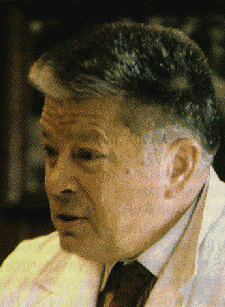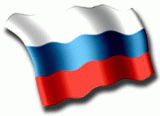


| 
| 
| 
| 
| 
| 
| 
| I want peasants own farms, workers own factories,
physicians own clinics, and everyone pay a 30% tax, and the
rest is theirs. Svyatoslav Fedorov, 1994 |
Born in 1927 in the city of Proskurov, Ukraine, Fedorov graduated from Rostov-on-Don Medical Institute in 1952. He is married and has two daughters.
In 1952-53 Dr. Fedorov practiced medicine in the Cossack village of Veshenskaya, Rostov region. In 1953-55 he was Chief of Ophthalmology Unit in Lysva City Hospital, Molotov (Perm) region. He then returned to Rostov-on-Don for postdoctoral studies. Since 1957, Dr. Fedorov headed the Clinical Department of Cheboksary branch of Helmholtz Ophthalmology Research Institute. There he performed the first artificial eye lens implantation in Russia in 1960. In 1960-1967, Svyatoslav Fedorov held the position of Head of the Ophthalmology Department of Arkhangelsk Medical Institute. After that, Fedorov moved to Moscow, where he became Chief of the Artificial Eye Lens Implantation Laboratory. His research involved design of artificial cornea implantation operations, early glaucoma surgery, treatment and correction of nearsightedness. In 1980, Svyatoslav Fedorov founded the Eye Microsurgery Institute that was renamed to the Eye Microsurgery Center in 1983. Fedorov is a correspondent member of the Russian Academy of Sciences, the Chairman of All-Russia Scientific Society of Ophthalmologists, and a member of several other scientific societies. He is a Paleolog Prize winner and a Pericles Prize winner. Fedorov received many government awards.
In 1989, Fedorov was elected to Congress of People's Deputies of the USSR, where he worked in the Commitee on Economic Reform. In 1991, Fedorov quit the Communist Party and joined the Democratic Party of Russia. In 1992, he switched to Konstantin Borovoi's Party of Economic Freedom only to make another attempt to find a perfect political niche a year later, in the Russian Movement for Democratic Reforms. In 1995, Svyatoslav Fedorov founded the Party of Workers' Self-Rule, the platform of which reflects his peculiar blend of views.
The Eye Microsurgery Center of Dr. Fedorov is presently a successful enterprise co-owned by its employees. A talented businessman and energetic administrator himself, Fedorov advocates the mass creation of joint stock companies to guarantee workers a share of profits and let them actively participate in management of their firms. He calls his concept "democratic capitalism" or "popular socialism" and stands for economic freedom, simple and moderate taxation, stimulation of production, and a ban on exports of most raw materials. He presents himself as a third force in Russian politics and has said he draws inspiration from former U.S. presidential candidate Ross Perot and China's paramount leader Deng Xiaoping.
On September 2, 1995, speaking about the bloody war raging on Russia's outskirts in the Caucasus, Fedorov said, "The Chechnya conflict is nothing but a clash between Chechen elite and Russian elite wanting more tributors. We need a confederation, it isn't necessary to oppress anybody." He suggested replacement of the military action by a blockade of Chechnya and expressed hope that, after a few years, when Russian economy flourishes, Chechens "themselves will stand on their knees begging to let them join the economic union."
The Party of Worker's Self-Rule captured 3.98% of the party list vote in the 1995 parliamentary elections to finish eighth. Svyatoslav Fedorov was elected to the State Duma in a one-mandate district. He announced his decision to run for president on January 11, 1996.
Svyatoslav Fedorov was officially registered as candidate on April 19 (1,735,375 signatures of support were submitted to the Central Electoral Commission).
The abortive "third force" alliance of Grigory Yavlinsky, Alexander Lebed, and Svyatoslav Fedorov seemed to have suffered a fatal blow, when Fedorov said on May 8 that he will not withdraw his presidential candidacy. Earlier, he indicated he might step down for Yavlinsky or Lebed. Fedorov added that if Communist Party leader Gennady Zyuganov were elected president, he might be willing to accept the post of prime minister. (On May 6, after a meeting with Yeltsin, Lebed announced that he would not drop out of the race in favor of Yavlinsky).
Fedorov finished 6-th with 1.3% of the vote on June 16, so he is no longer in the race.
 Back to Russian Presidential Elections-96 page.
Back to Russian Presidential Elections-96 page.